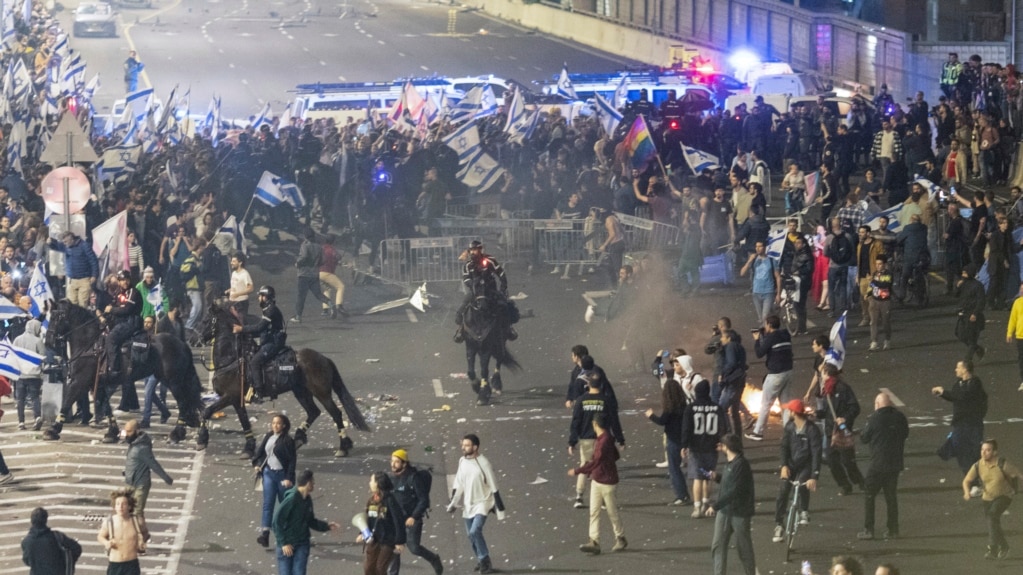In Israel, thousands of protesters demonstrated Sunday and Monday against Prime Minister Benjamin Netanyahu’s plans to make changes to the nation’s top court.
People walked the streets of Tel Aviv and Jerusalem, waving white and blue Israeli flags. Many workers did not go to their jobs on Monday and Ben Gurion Airport near Tel Aviv suspended outgoing flights.
The leader of Israel’s largest worker’s group is Arnon Bar-David. “Bring back the country’s sanity,” he said.
Netanyahu’s conservative coalition government says Israel’s Supreme Court has too much power. The changes would permit leaders in parliament, known as the Knesset, to appoint judges and also restrict the court’s ability to rule against the government. The plan would give lawmakers greater power in appointing new judges.
Those in the conservative government say the court is often putting the rights of minorities ahead of the nation’s interests.
The current rule in Israel requires agreement on new judges from a group that includes politicians and judges. The new plan would permit government leaders to name the judges.
Netanyahu said the plan would balance the court. Critics, however, say he wants his government to be able to change the group of judges because he is facing an ongoing legal case. Netanyahu is barred from involvement in the planned changes.
One member of the government, Yoav Gallant, was dismissed as defense minister for opposing the plan. Some Israelis worried about the country’s armed forces without the top government leader.
Netanyahu was supposed to make a television appearance on Monday announcing the changes, but it was postponed. He made a statement on Twitter, asking protesters “to behave responsibly and to not act violently. We are brotherly people,” he said.
It is not clear when the Prime Minister will push again for the changes, some think it might be after parliament returns on April 30 after the Jewish Passover holiday.
The Israeli president is Isaac Herzog. In Israel, that position does not have much power. However, Herzog said: “For the sake of the unity of the people of Israel, I call on you to stop the legislative process immediately.”
Why are Israelis concerned?
Israel does not have a strong system of “checks and balances” where the parliament and the judiciary have different and balanced powers. In fact, Israel does not have a written constitution, only “basic laws.”
Critics say the ruling Likud party, led by Netanyahu, would become too strong if the changes are enacted.
Matityahu Sperber, who is 68, was walking to a protest outside the Knesset. Sperber told the Associated Press: “This is the last chance to stop this move into a dictatorship. I’m here to fight to the end.”
I’m Dan Friedell.

